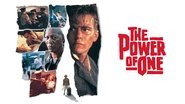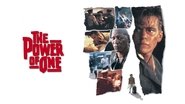mmunier
What a wonderful story despite the great sadness it depicts - I watched this once more, but this time after having visited South Africa and surrounding. And there was then something more familiar about it, My trip was very much safari so brushed more with the animals than the people. As such I enjoyed so much the scenery and the music (not that there was this kind of music in the Savannah!) But I was aware it belonged to it. As for the people, our guides were locals from Zimbabwe but well educated, Yet I think I could sense some remnant of Apartheid. I remember commenting about the Jews in one other movie and I felt some similar feelings with black population and the way I grew up. This time it was not hatred, but something different yet also negative. I remember when a pre teenager we received a very black teacher and how surprised to hear how much better he could speak than we could. TPOO does wake up in us these feelings, or their memory. And it also shows what only one can achieves to make the world a better place. I enjoyed the acting especially that little boy in the beginning.
nzallblacks_12
First, I'll state the obvious: Avildsen's film adaptation of Bryce Courtenay's novel of the same name is complementary. However, it does lack in some key areas. Specifically, the film version has been altered far too much for my liking. In the end, those changes proved to be detrimental.For sure, the director shouldn't have departed from the novel's superb plot. Perhaps, he did this to gain a wider audience's appeal. And he did do just that judging from the many positive reviews given. Many of those reviews were even written by a much younger generation too. I've noted that reviewers are disparate: critics and fans alike chimed in from all over the globe. That's good, I suppose.Still, the movie is found wanting. Avildsen has corrupted much of the novel's political/social context. For example, Avildsen depicts the Boer (Dutch farmer) or Afrikanner in the thorniest of light, without exception. Most times, the Boer personage is seen and heard almost exclusively as a carbon copy of the European Nazi. To him, the character's role is inconsequential even if it's a bit part. They're all the same. And they all bark along with the ability to spew even venom.The Afrikanner's strong affinity (supposed) for Hitler's movement is correlated to their equal zeal for the German's quest for racial purity. No doubt that same zeal is rooted in the Boer's religious fanaticism. Avildsen, even takes sore pains to make this same point though rather pointedly on young Jappie Botha's @ss! Ouch!The film from the beginning and throughout makes us fully aware of the Boers' national character flaws. What Avildsen neglects to inform us is, 'apartheid' began long before the National Party took office in 1948. Even the English South African or 'Rooinek' had a helping if not equal hand in setting up the strict racial divide in South Africa.The real truth is this: wealthy and powerful elitists amongst the 'rooinek' ranks were altogether instrumental in crafting first and lasting segregationist precedents. Although they did so unwittingly (Of course they did!). Witness the olde 'Union of South Africa'. Even way back then the British gladly evicted from a train (some say forcibly) the ultra pacifist and soon to be world renowned social reformer, Mahatma Gandhi.Gandhi though, didn't even bother to turn the other cheek. Wisely, he packed his meager belongings and then fled the country while both halves were still intact; what cheek!Avildsen does not do the novel real cinematic 'justice'. To wit, he made far too many factual errors either by omission or commission. This film could have been a real cinematic masterpiece. All he need do was stick to the novel's noble plot: despite much personal tragedy and daunting odds the human spirit yet triumphs. That much is true, if one recognizes the power of one/oneness.Still, there are some bright spots, even flashes of brilliance. Morgan Freeman's portrayal of the incorrigible Geel Piet is electrifying. The veteran actor rightly deserved at least three Oscars. His stirring performance was altogether unforgettable.The others were cast perfectly. Steven Dorff, as the mature Peekay delivers a pretty good 'eight punch combination'. His portrayal of the main protagonist was credible. Soon, I could identify with his (PeeKay's) struggles, disappointments and belated successes.The most pleasant surprise came from an unlikely source. Probably for many viewers, it also came from the the least liked character: chief antagonist, Jappie Botha (Sgt.). Daniel Craig not only supplied the muscle but he also handled the difficult Boer accent with ease.Craig's expressions and working the scene props were performed with so much naturalness. I still see him today as he appeared then: the hate filled, unrepentant and revenge minded S.A.P. blind state loyalist.Fittingly then, and almost by fate, Craig Bond's first 30 minutes of cinema fame came with distinction. Maybe that's not really the case; the truth is, Jappie was real bad. Craig, showed us his every ugly side too.The film had many memorable moments. One occurred during a police raid of Alexandra, a black township. At last Sgt. Botha has caught the elusive Peekay, injured and alone. A crazed Botha addresses his captive."Oh, I'll take you (Peekay) in... I'll take you in, when you're dead."In summary, if not for Avilden's much spin and radical departure from the original script, I could have easily awarded 10 spangled stars, possibly five more.Alas...
ganymedes62
This movie is controversial as can be deducted from the diverse comments upon it. It is my opinion though that those who commented negatively on this movie have failed to see it in the historical perspective it was meant to show. The 30's and 40's of the previous era are well known for the oppression people all over the world suffered. This movie shows that standing up against that oppression may not seem to work at first, but it will have an effect ... however small. And that effect, that ripple in the pond, will find its way outward. This movie, more than any other I have ever seen, shows that discrimination on skin color is wrong, now matter when ... no matter what.That is the message this movie gives to me and that is the message it should convey. The characters are played convincingly and each has a power of his own. If you just try and see this movie in its historical perspective, you'll see it for the jewel it is.
asbrani13
I think this movie should be mandatory viewing in schools. This has got to be one of the most powerful and uplifting movies ever made. It does't beat around the bush about what's wrong in these places and shows that we can make a difference. I don't like watching movies very much, but once in a while one will come out that just blows me away and this is one of them. The actors do a spectacular job and it draws you into the movie. I have seen The Power of One several times due to me wanting others to see it. This is a great family movie as well and any child can be touched by it's meaning. This is highly recommended by me and all my friends and family who I have forced to watch it.



